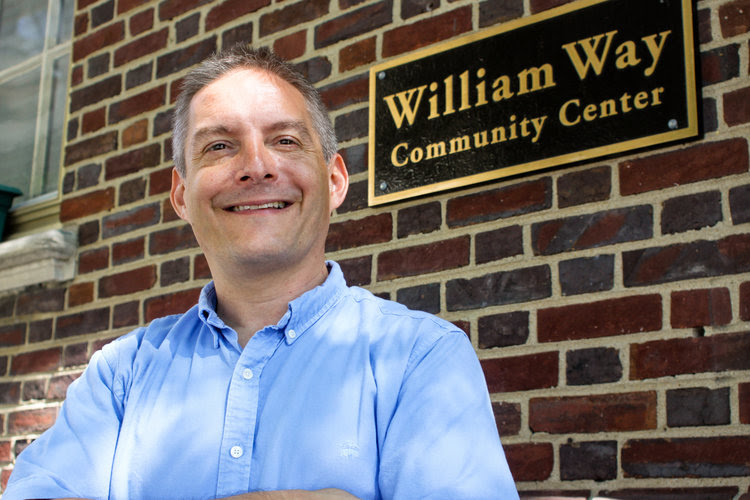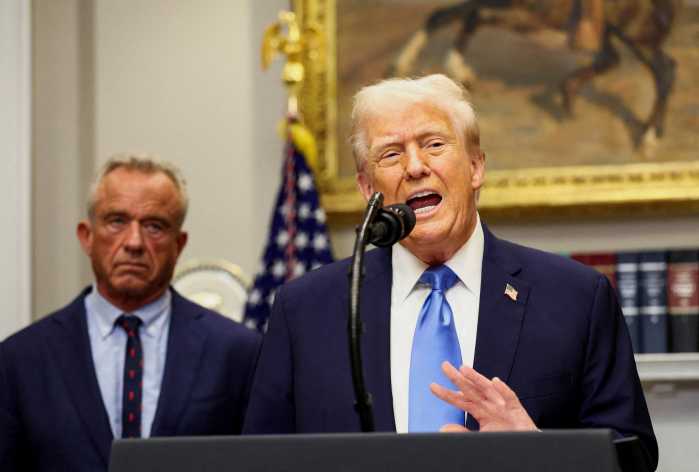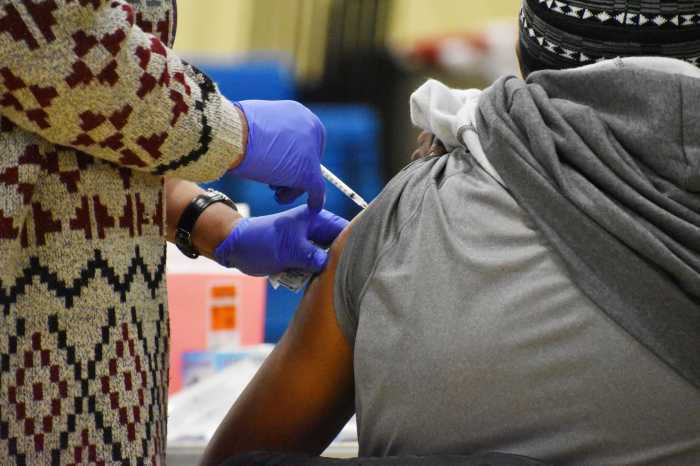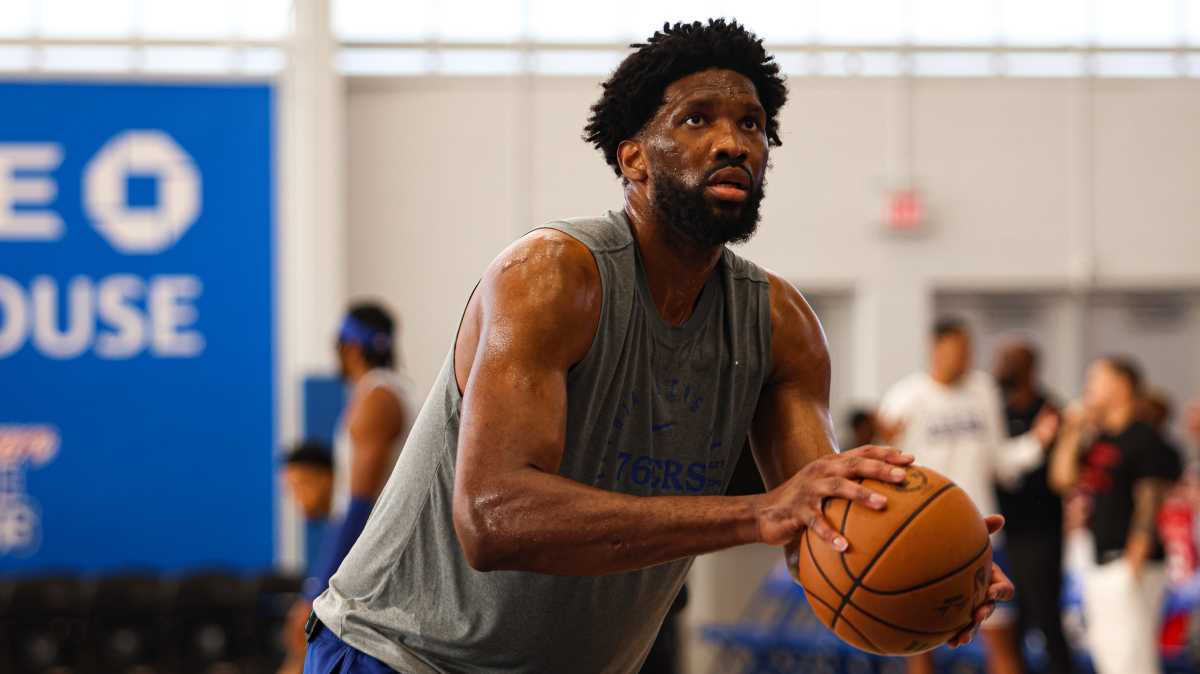Saturday night’s Indigo Ball at the Sofitel Rittenhouse Hotel, in support of Center City’s William Way LGBTQIA Community Center, was a stunning success, raising more than $125,000. The now-47-year-old nonprofit—open 24/7, 365 days a year—is dedicated to empowering, engaging and serving the area’s lesbian, gay, bisexual and transgender population, young and old. William Way has been there to fight against AIDS and COVID-19, for marriage equality and social justice, and more.
Other local LGBTQIA organizations, from the Attic Youth Center to the Bearded Ladies Cabaret, were in attendance after helping to raise money for the legendary, necessary 1315 Spruce Street-based community center.
William Way’s longtime Executive Director Chris Bartlett spoke with Metro following the Indigo Ball, on National Coming Out Day, and discussed just how the center reflects and affects Philly’s LGBTQIA community in 2021, and, most crucially, how that same community affects William Way.
Amorosi: This was the first in-person Indigo Ball after the outbreak of COVID. How did it feel?
Bartlett: It felt great. I can tell it was fun because I had fun, which is rare. We made many preparations to make this safe with vax proof and masks. We made sure that it was a much smaller event than usual. I think everyone felt taken care of. The energy didn’t feel fearful to me.
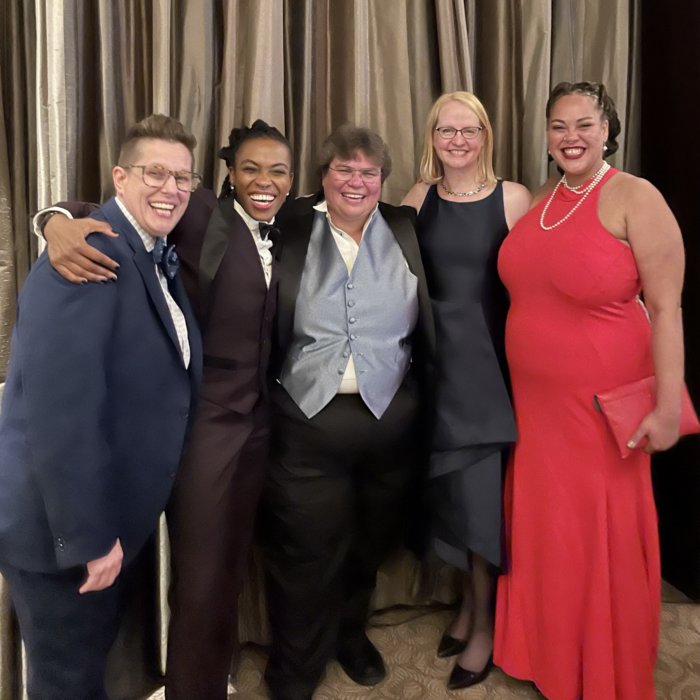
Amorosi: That’s certainly in accord with the mission of the William Way. Something you said onstage at Indigo Ball caught my attention: that with Bearded Ladies and Attic Youth Center raising funds – local LGBTQIA+ agencies who need their owns funds raised – there is, at this time, more than ever, a coming together for each other. You said to each of them that you would be onboard for their fundraising efforts whenever they need you. Can you discuss that further.
Bartlett: Indigo Ball is a time when all of our community organizations come together. The Center is, and will always be a venue where all of these organizations can do their work. William Way shows up for those organizations, too. To have solidarity during a time of one of the greatest challenges our community has faced since the AIDS epidemic – the time of COVID – is crucial. COVID revealed life and death issues for our community – housing, food, services for seniors. We have to maintain our level of service and help while celebrating our vibrant culture.
Amorosi: The AIDS epidemic showed how strong and resilient this community can be. They know how to get through any pandemic.
Bartlett: The AIDS epidemic taught us a lot. Sadly. We all lost friends and family. We didn’t have the time or the luxury to not work together to fight. COVID has revealed a similar dynamic. Dealing with community homelessness, people going to bed hungry and in need of vaccinations – we have to work on this together, and different organizations bring different expertise, whether that’s cultural competency in the Latino, the Black, with women, or provide direct medical service which we don’t do which led us to partner with the Mazzoni Center and Philadelphia Fights. We’re at our best when we can bring all of those resources together for those who need them. The magic of the Center? We don’t always know how we’re going to make it through the next year – certainly that was true during COVID – but people showed up for us to maintain our services and to learn how to provide online opportunities and cycling through hybrid approaches between live and virtual hats we had to figure out during 2020’s pandemic. We have new opportunities in which to provide a healing role whether it is with Black-trans communities, the homeless and seniors. We see the need because we intersect with so many needs, and we’re compassionate.
Amorosi: Learning on the job how to make and host Zoom meeting was a big part of the Indigo Ball’s speeches—how everyone had to figure out fresh skills and how to apply them broadly and quickly to communities that couldn’t wait.
Bartlett: We did. And we discovered how valuable a resource Zoom and hybrid live and virtual programming could be as we have visitors from South Africa, Mexico and more. We’re not abandoning our virtual opportunities either.
Amorosi: Looking ahead, where does William Way stand? What is the state of Philly’s LGBTQIA communities – is it tended to, ministered to, on a city level beyond William Way’s aid?
Bartlett: Philly is the greatest LGBTQIA city. Part of that is known, quantitively by the HRT Municipal Equality Index that rates cities by the work done, affirmatively for that community. Philly has a ‘100’ and got extra credit. Because we are a diverse city, we express the ways LGBTQIA culture affects all – whether it was Amber Hikes, Michael Henderson, Kendall Stephens or Gloria Casarez. These leaders encouraged Philly’s mayors, since Mayor Goode, for our community to grow and thrive. And it’s still an affordable city, far beyond NYC and Washington D.C.
Amorosi: What is your opinion regarding how the center interacts with its transgender community as violence continues to be a hard and daily reality?
Bartlett: Before COVID, William Way opened the Transgender Resource Center, directed by a Black-trans man, Darrius McQueen – a visionary leader. We have trans leadership. They have a vision toward where they want to take the city, based on the life and death issues of violence against trans people, housing and economic development. We’re currently partnering with the Independent Business Alliance to get job training for the trans community is a good example.
Amorosi: So, what is crucial and important to know about William Way coming up in the immediate future?
Bartlett: Our senior programs are going strong, and our free holiday catered meals, now on Thanksgiving and Christmas, will probably be outside the William Way again, boxed and delivered to those in need. We do virtual tours of the center where you can see and listen to people whose lives have been changed by William Way with a follow-up call as part of the program. This is not about fundraising, but rather community engagement. Reach out to Info@waygay.org for that. It is a great way to find out what we do at the center, and more importantly how to get involved.



